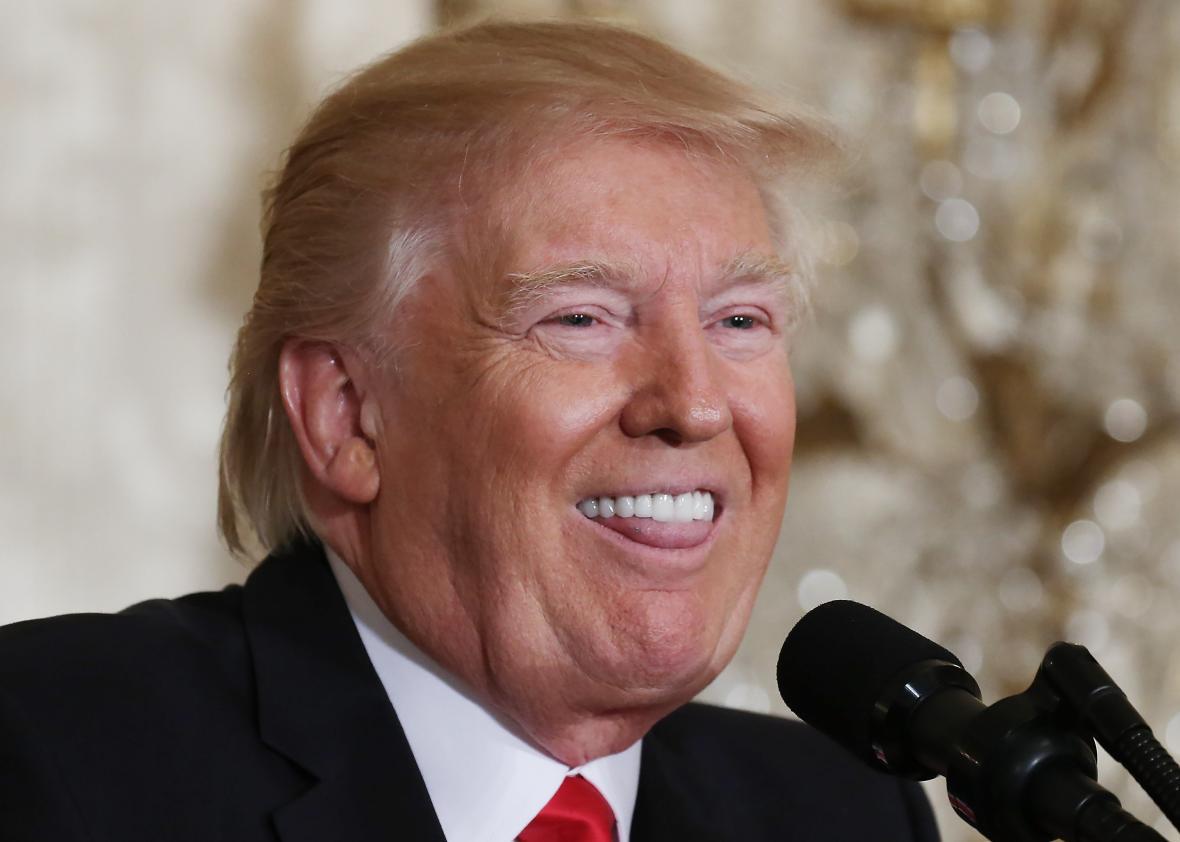President Trump is expected to unveil a budget outline Monday that increases defense spending and spares big entitlement programs like Social Security and Medicare, which Trump has promised not to cut. He will, however, reduce spending on social programs significantly. From the New York Times:
The budget outline will be the first move in a campaign this week to reset the narrative of Mr. Trump’s turmoil-tossed White House.
A day before delivering a high-stakes address on Tuesday to a joint session of Congress, Mr. Trump will demand a budget with tens of billions of dollars in reductions to the Environmental Protection Agency and State Department, according to four senior administration officials with direct knowledge of the plan. Social safety net programs, aside from the big entitlement programs for retirees, would also be hit hard.
The Times reports that the budget being drafted—which will likely change once Congress gets its hands on it—already reneges on one of Trump’s implausible campaign pledges: It assumes 2.4 percent economic growth this year rather than the 3 to 4 percent growth Trump assured his voters the economy would be able to achieve under his administration. The administration says it will bring about that 2.4 percent growth through significant tax cuts, even though the last major package of tax cuts, passed early in the Bush administration, failed to generate robust growth.
No reports have emerged yet on what impact the proposed budget will have on the deficit or long-term debt, problems the Republican Party insisted would bring about the end of civilization during the Obama administration. On Saturday, the president, informed by a Fox & Friends segment with Herman Cain, tweeted that he had already decreased the debt by $12 billion, even though he has yet to sign a single piece of fiscal legislation.
This is because the debt fluctuates naturally over time depending on the government’s existing schedule of payments, tax collections, and other factors. “Using the same logic, for example,” the Washington Post’s Ana Swanson wrote on Saturday, “you could claim that after four days in office Trump increased outstanding public debt by more than $10 billion, and that Obama had reduced it by $6 billion.”
